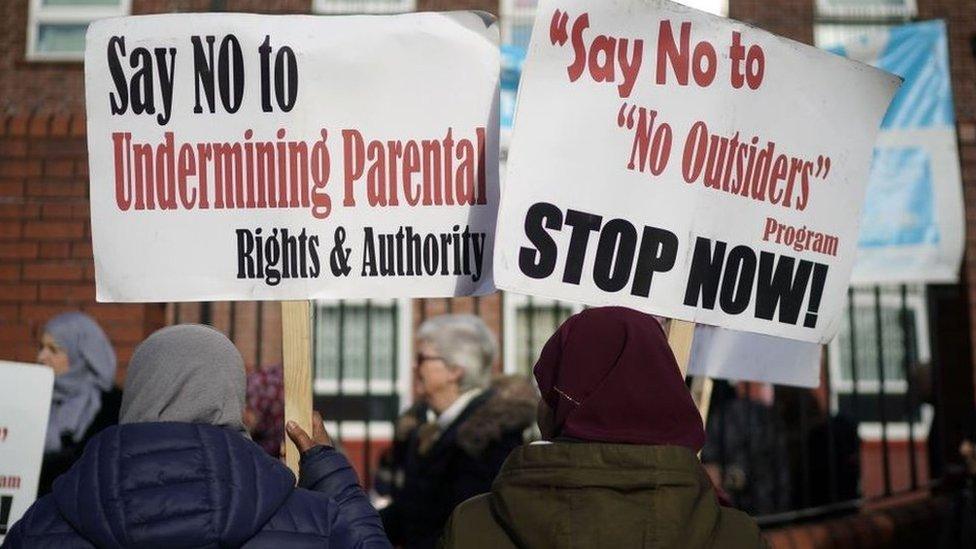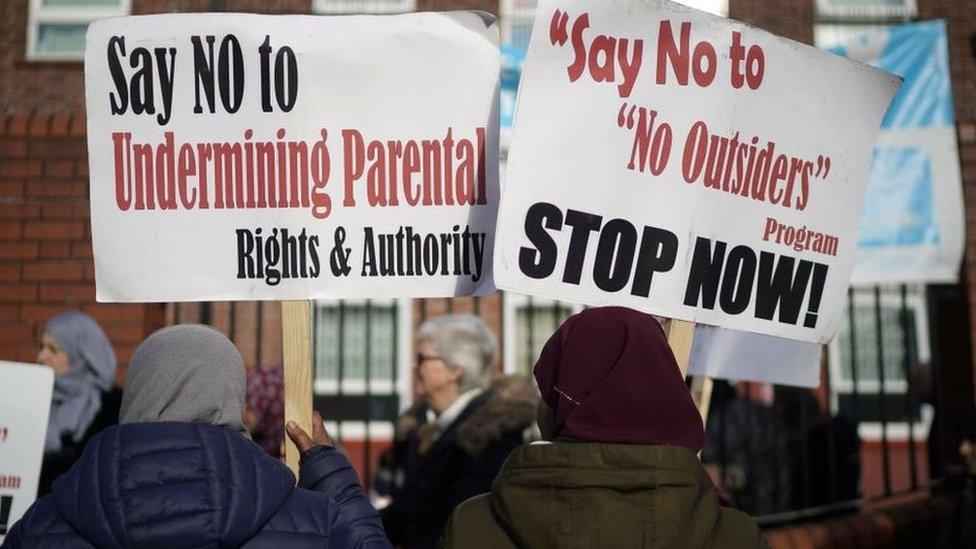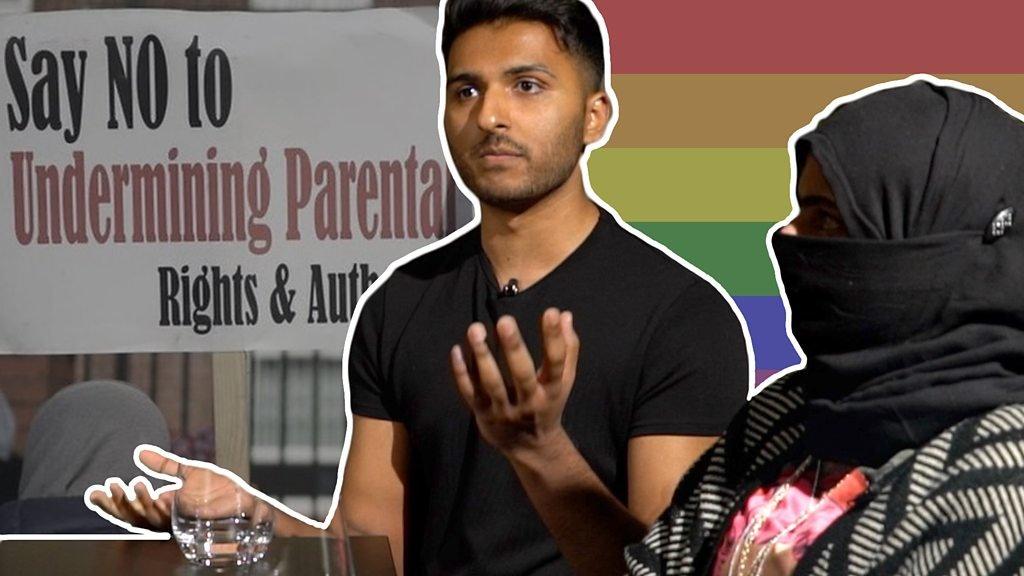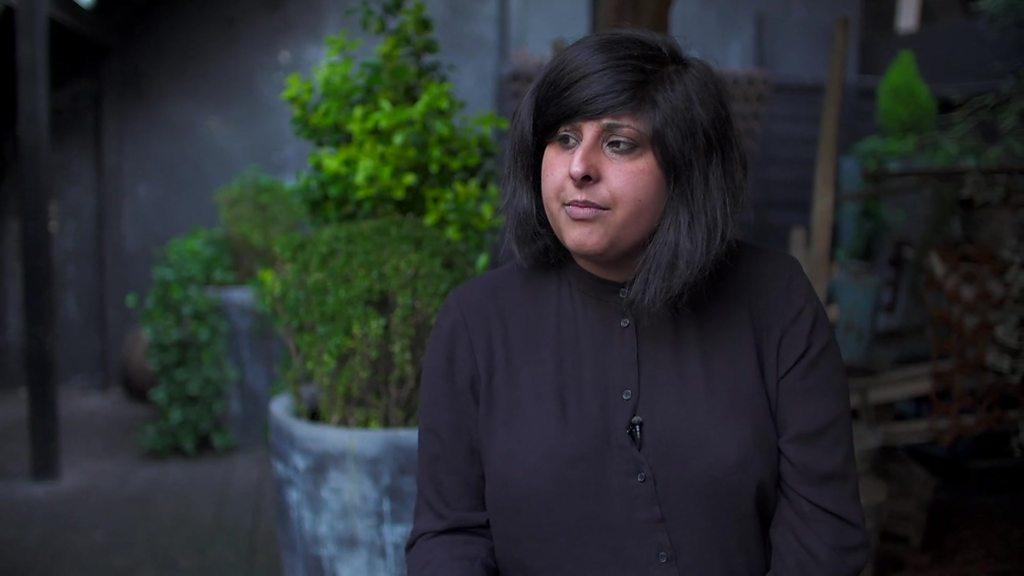Teaching guidance on LGBT relationships too unclear, say heads
- Published

Demonstrators outside Birmingham primary schools wanted an end to LGBT lessons
Head teachers have challenged ministers to deliver better support for schools facing criticism from parents over lessons on same-sex relationships.
The move follows weeks of protests outside schools in Birmingham.
Head Sarah Hewitt-Clarkson told the National Association of Head Teachers' conference that official teaching guidance on LGBT love was unclear.
Education Secretary Damian Hinds has said no child should have to walk past demonstrations to go to school.
Ms Hewitt-Clarkson told the annual meeting there had been five weeks of protests over equality lessons outside her school, Anderton Park primary.
"The lead protestors have no children at my school," she said.
She highlighted photographs of some of the banners displayed outside the grounds, declaring slogans such as "Adam and Eve, not Adam and Steve" and "We have a say in what they learn".
Addressing the conference, Ms Hewitt-Clarkson asked: "How have we got to this beyond awful state of affairs?"
She said the government's new draft relationships education policy - due to come in next year - stated that primary school children should know that marriage, both to same-sex and opposite sex couples was a life-long commitment.
It also stated that families could be single parents, LGBT parents, grandparents and so on.
"This is excellent and clear," she said.
But she said she believed official guidance to heads did not make it sufficiently clear that the policy did not specifically seek to promote LGBT relationships or indeed heterosexual relationships, but rather "love and care" more generally.
Ms Hewitt-Clarkson said she also objected to suggestions in the guidance that it was up to primary schools to decide whether teaching about LGBT relationships specifically was age-appropriate for their pupils.
Ms Hewitt-Clarkson said this made "a policy that is meant to be the same for all, different for all", with individual head teachers like herself left having to sort out the confusion.
She called on Mr Hinds to work with her and the NAHT "to sort out this unequal mess".
The conference motion for "a more robust and legally enforceable policy and support for schools as they carry out their public sector equality duty", was carried unanimously.
A Department for Education spokesperson said the guidance was clear that schools would have "flexibility to deliver the content of relationships, sex and health education in a way that is age-appropriate and sensitive to the needs of their pupils.
"It is also unequivocal that these subjects do not promote anything, they educate.
"Ultimately it is for the school to decide what is taught in the curriculum and we trust them to make reasonable decisions based on the feedback they receive from parents," said the spokesperson.
- Published10 April 2019

- Published5 April 2019

- Published1 April 2019

- Published1 April 2019

- Published29 March 2019
